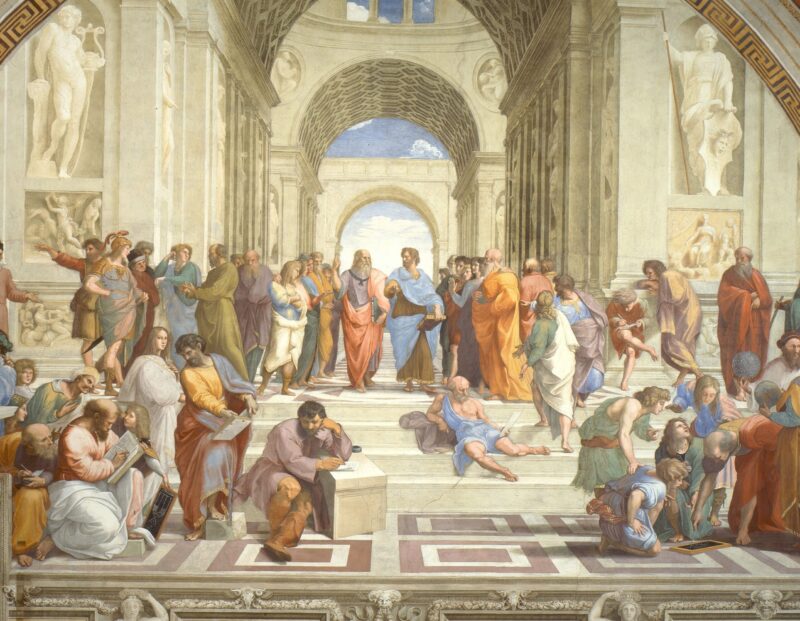
Liberal Arts Gateway Courses
Liberal Arts Gateway Courses
Liberal Arts Gateway (LAG) courses are designed to help students develop the skills, knowledge, and mindset needed to succeed in college and beyond, no matter what pathway they choose. LAG courses are open to everyone.
Every LAG course is on the core curriculum and therefore found on most program maps.
Liberal Arts Gateway courses put the student experience on centerstage through engaging themes, interesting assignments, and course activities that invite you to contribute your perspective and aspirations. LAG courses build equity and inclusion from the ground up, and our professors help you learn skills not just for the next course, but for a lifetime of learning and leadership.
Note: This course list was updated August 2024. Offerings subject to change based upon ongoing curriculum review.
Courses in Philosophy
Philosophy 2306 – Ethics
Ethics with Global Studies Focus, Linda Cox
In this Global Ethics course, students will delve into challenging and complex moral questions and explore possible solutions from a variety of global perspectives. They’ll build an ethical toolbox to look at global approaches to social issues such as criminal justice, animal rights and interests, healthcare, and hunger. And then they’ll collaborate in a game where groups use their creative and critical thinking skills to build an ethical society–and then encounter unforeseen crises that challenge their ethical thinking along the way!
Justice and Equality: Theory and Practice, J. Wade Allen
Students will be introduced to the principles of morality through a critical examination of various ethical theories. In this particular course, we will be looking to apply those theories to issues of justice and equality, with a particular focus on racial justice. We will (1) be addressing the philosophical tools to solve ethical problems, while also reviewing the topic of moral skepticism and an analysis of justice from Plato’s Republic, (2) we’ll address a number of traditional and non-traditional ethical theories and think about their impact on issues related to justice, (3) we will address philosophical concepts of justice and how they apply to issues concerning race, and, finally, (4) students will make use of what they have learned to create their own group or individual arguments about particular issues related to racial injustice, which they will present to the rest of the class.
Racial Justice: Theory and Practice, Sherry Blum
Courses in Humanities
Humanities 1302 – Humanities: Renaissance to Present
Give Peace a Chance, Sarah Bowman
This course focuses on social issues throughout history from a global perspective. In addition to learning about historical and cultural shifts since the Renaissance, students closely read and analyze works of art from creators who have advocated for peace, social justice, and nonviolent solutions to conflict. Many approaches to history focus on conflict, war, and oppression and many cultural artifacts have been created that glorify war and conquest. While the study of violence is never far from the study of peace, this course aims to emphasize individuals within social movements since the Renaissance who have focused their creative output and social interventions on ways to develop a more peaceful, equitable world.
Exploring Global Influence in the Western World, Kerri Pope
This course explores the global influences on Western culture, innovation, and art. Students in this course make connections between European innovations and artworks and explore the role Colonialism plays in the dissemination and discussion of global culture.
What is Freedom? Kathleen Reeves
“What is Freedom?” surveys cultural works from the Renaissance to the present that are concerned with the nature of freedom, broadly defined. How is freedom achieved? Is it a quality or an action? How is it related to individuals and communities? Is freedom ever undesirable (do people ever desire to be free of freedom)? Possible texts range from Renaissance sonnets which ask how romantic love (or divine love) is related to freedom, to utopias, to paintings depicting national revolutionary struggles, to essays, visual art, and literature related to the many freedom struggles of the 20th and 21st centuries.
Humanities 1315 – The Arts in Contemporary Society
Strategies for Diversifying Exhibition, Jean Lauer
An introductory course designed to enhance a student’s understanding and appreciation of the modes of communicating ideas and emotions through the visual and performing arts. This section focuses on how contemporary museums, festivals, and archives engage the public in arts and culture.
Science Fiction in Literature and Media Arts, Jean Lauer
In this course, students will have the opportunity to delve into the genre of science fiction in a variety of media, from “classic” texts like Shelley’s Frankenstein to contemporary media including graphic novels, films, television, and other visual arts. Together the class will explore and discuss genre conventions, adaptations, diverse and global voices, and more.